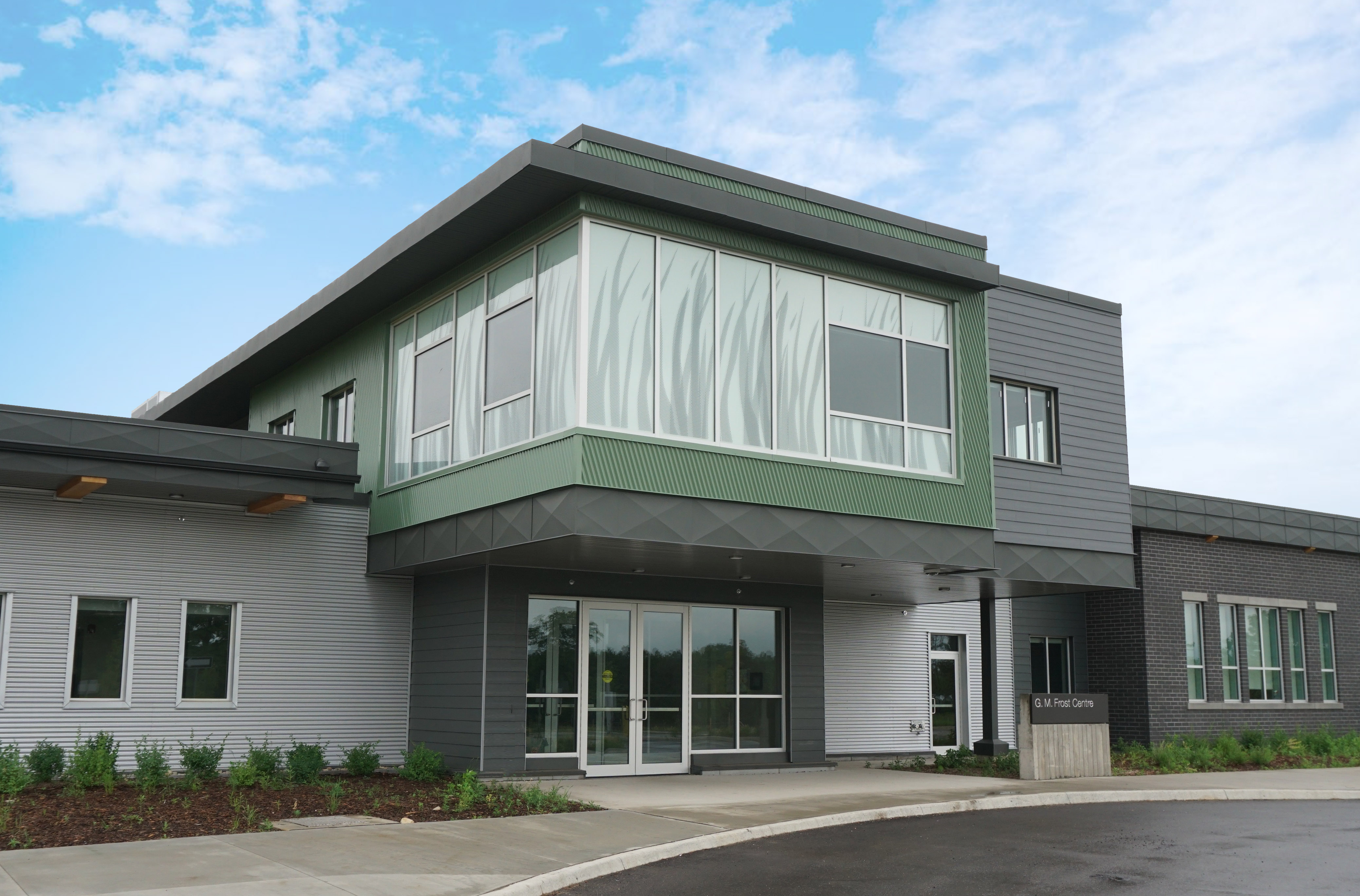Guelph Turfgrass Institute
The Guelph Turfgrass Institute (GTI) was created in 1987 through a partnership between U of G, the Government of Ontario and the turfgrass industry. For 35 years, the GTI has been a national leader in research, extension work and professional development for the study of turf.
In 2022, thanks to a collaborative effort among industry, individual and organization partners, including the Ontario Government through its agency the Agricultural Research and Innovation Ontario (ARIO), its home moved to the newly built G.M. Frost Research and Information Centre on the U of G campus.
The Ontario Government, through ARIO, provides funding for the Institute and for research operations at the site.
The space serves as a research, education and resource hub for Canada’s sports, golf, and residential turf industries. It is also the headquarters for the Ontario Golf Superintendents Association, Sports Turf Canada, and the Ontario Turfgrass Research Foundation.
It includes:
- 17 acres
- 14 new research plots, which include different combinations of turfgrass cultivars, mowing heights, and soil types
Research activities
- Environmental aspects of pesticide use
- Evaluation of grass species, varieties and seeding methods
- Sports field construction
- Fertility and management programs
- Biological and cultural control of diseases and weeds
Research field trials are conducted on site, and greenhouse and growth chamber studies are conducted at the Department of Plant Agriculture’s greenhouse growth facilities. The Guelph Turfgrass Institute provides pertinent research findings and educational opportunities for sod farmers, homeowners, parks and recreation managers, sports turf professionals and golf course superintendents.
Current research studies
| Objective | To determine improved measures for management of turfgrass diseases by investigating fungicidal resistance or alternative methods to fungicides, and by investigating products and methods that will activate the plant to become disease-resistant. |
|---|---|
| Benefit to Agri-food | Turfgrass managers frequently use fungicides; therefore, it is important to understand the development of fungicide resistance to improve management programs. Managers will also benefit from the development of new products like the disease-resistant activators as an alternative product to protect the grass. |
| Objective | To: Determine the influence of biofertilizer applications on biomass crop productivity, soil health and greenhouse gas (GHG) emissions; Evaluate the contribution biomass crop production has on the ecosystem via soil health and soil organic carbon sequestration; and Develop best management practices (BMPs) for this sector. |
|---|---|
| Benefit to Agri-food | There is a large demand for biomass crop production for various agricultural use. This research will help Ontario biomass growers understand the use of biofertilizers to increase biomass crop (switchgrass and Miscanthus) yield and growth. Additionally, this study will evaluate how biomass crop production can improve soil health when grown on low-productive land, providing an opportunity for growers to make use of the over 10 million ha of degraded agricultural land in Canada. |
Contact
Visit the Guelph Turfgrass Institute website.
